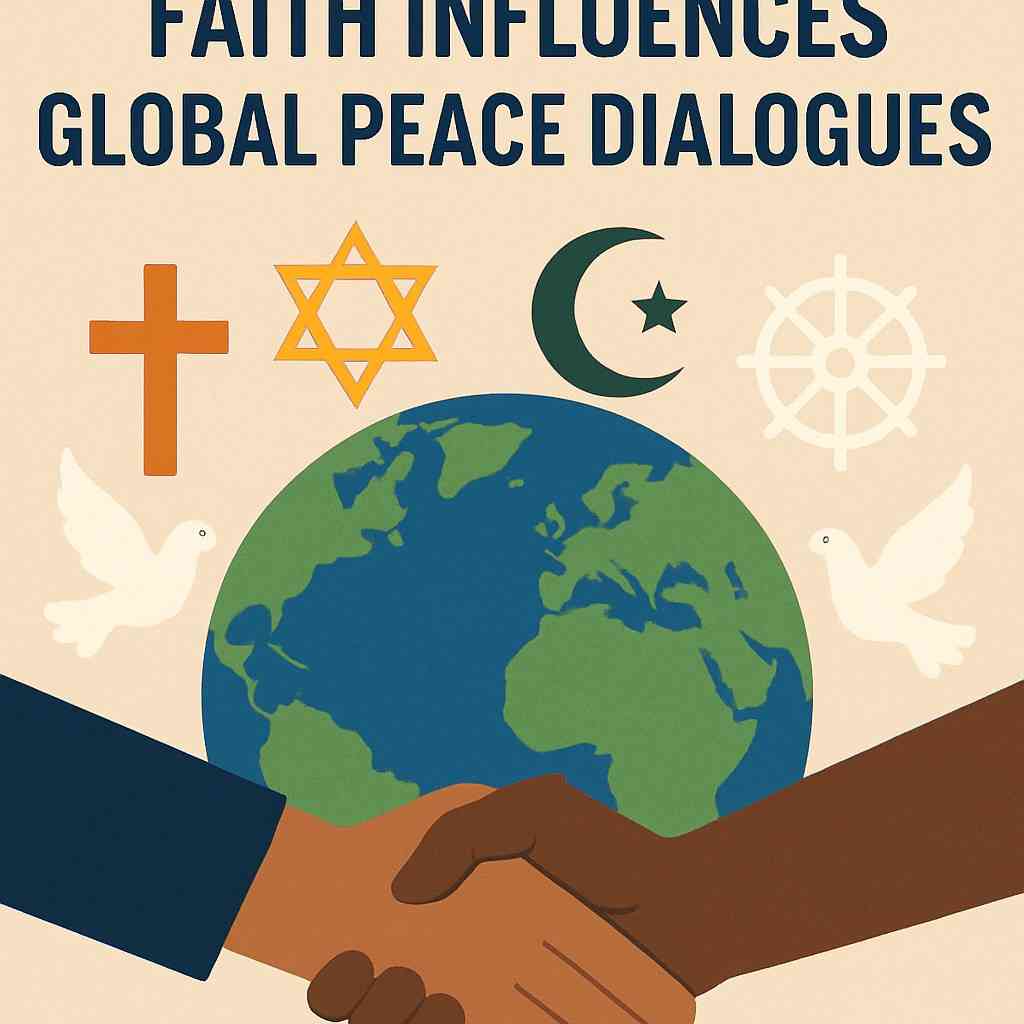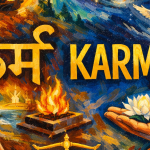How Faith Influences Global Peace Dialogues
In a world often divided by politics, borders, and ideologies, faith continues to serve as one of humanity’s most powerful forces for unity and peace. Religion, at its core, is not merely a set of rituals or beliefs; it is a deep moral compass that shapes how individuals and societies view compassion, justice, and coexistence. While religious differences have sometimes been a source of conflict, they have also inspired some of the greatest movements for peace and reconciliation across the world. Today, as nations grapple with wars, cultural clashes, and social unrest, faith continues to influence global peace dialogues in profound and evolving ways.
Faith as a Moral Foundation for Peace
Every major religion in the world — whether it is Hinduism, Buddhism, Christianity, Islam, Judaism, Sikhism, or others — teaches the importance of peace, forgiveness, and harmony. The shared values of nonviolence, empathy, and love for all creation form the ethical foundation upon which peace dialogues are built. When spiritual leaders speak in global forums, they remind humanity of its shared spiritual heritage and the moral duty to end suffering.
For instance, the teachings of Mahatma Gandhi, deeply rooted in Hindu and Jain traditions of ahimsa (nonviolence), became the moral backbone for global movements of civil rights and freedom. Similarly, Christian leaders like Martin Luther King Jr. and Archbishop Desmond Tutu drew upon their faith to challenge injustice and inspire reconciliation. Across the Islamic world, concepts like salaam (peace) and rahma (compassion) have guided initiatives that bridge divides and promote understanding.
Faith, in this sense, is not only personal but political — it has the power to heal wounds that diplomacy alone cannot.
Religious Leaders as Peacemakers
In many parts of the world, religious leaders play a critical role in resolving conflicts. Their influence often extends beyond political boundaries, reaching communities that might not trust governmental or foreign institutions. When monks, priests, imams, or gurus advocate for peace, their words carry spiritual authority and emotional depth that can transform hearts.
Global platforms like the “Parliament of the World’s Religions,” “World Council of Churches,” and “Religions for Peace” have shown how faith-based dialogue can unite people of different traditions to address issues like war, poverty, and climate change. In interfaith summits, leaders come together not to debate theology, but to find common ground in moral responsibility — caring for humanity and the planet.
Such collaboration has been vital in conflict zones. For example, during ethnic violence or communal riots, local faith leaders often step in to mediate, organize joint prayers, and rebuild trust among communities. Their role proves that true spirituality transcends boundaries and speaks the universal language of peace.
Faith-Based Diplomacy
In modern international relations, a new field called “faith-based diplomacy” has emerged. It recognizes that religion can be both a source of tension and a key to resolution. Governments and NGOs increasingly partner with religious organizations to promote dialogue, especially in regions where faith is deeply embedded in social identity.
Faith-based diplomacy does not replace traditional negotiation — it complements it by addressing emotional and moral dimensions of conflict. For instance, peace processes in places like South Sudan and Colombia have included church and mosque leaders to facilitate reconciliation. Their presence provides a sense of moral credibility and trust that political actors often lack.
Challenges and Misinterpretations
While faith can unite, it can also divide when misused. Extremist interpretations of religion have led to wars, discrimination, and hatred in many regions. The challenge lies not in faith itself, but in its manipulation for power or politics. True peace dialogues must therefore focus on the essence of faith — compassion, humility, and understanding — not on rigid doctrines.
Interfaith cooperation becomes essential here. When different religions work together, they demonstrate that diversity is not a threat but a strength. By highlighting shared ethics rather than differences in belief, faith communities can counter the narrative of division and foster a global culture of mutual respect.
The Role of Youth and Technology
In the digital age, young believers from various faiths are connecting like never before. Social media platforms host interfaith discussions, online prayer initiatives, and peace campaigns that reach millions. Young people are reinterpreting religious teachings in a modern context — emphasizing unity, sustainability, and mental well-being.
Faith-inspired peacebuilding programs in universities and NGOs encourage students to view religion as a bridge, not a barrier. This fresh wave of spiritual activism shows that peace is not only a political project but a human responsibility.
Faith and the Future of Global Peace
As global crises — from wars to climate change — threaten the world’s stability, faith communities are stepping forward as moral voices calling for cooperation. From the Vatican’s appeals for disarmament to Buddhist and Hindu environmental movements, spiritual leaders are proving that peace begins with a sense of sacred responsibility toward life itself.
Faith, when understood in its purest form, reminds humanity that all lives are interconnected. The idea that “we are one family under one Creator” inspires global compassion and collective action. Whether it is providing aid to refugees, standing for justice, or protecting the environment, faith-based initiatives continue to influence how nations talk about peace and what they do to achieve it. Faith has always been a double-edged force — capable of both division and unity. But when guided by wisdom and compassion, it becomes one of the strongest instruments for peace. In global peace dialogues, faith gives voice to the conscience of humanity, urging leaders to look beyond power and toward purpose.
The ultimate message is timeless: peace is not just the absence of conflict, but the presence of understanding. And true understanding begins when we see every person — regardless of religion — as a reflection of the divine. Through faith, humanity finds not only hope but the courage to create a world where peace is not a dream, but a shared reality.
~Religion World Bureau










